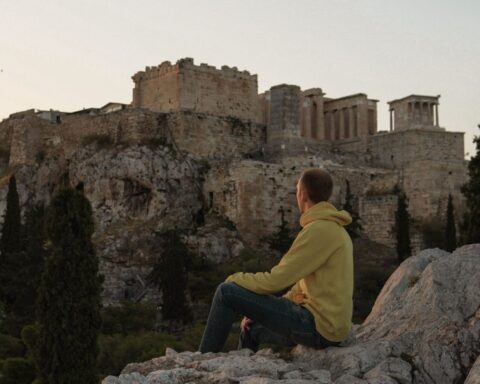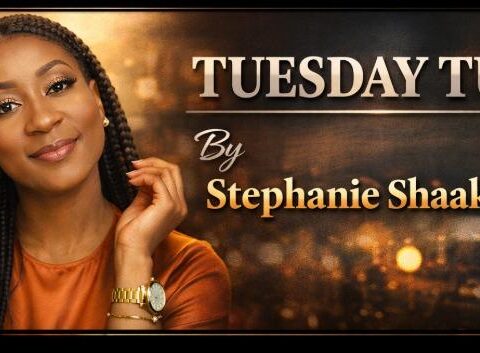-
A tribe is like an old person. When a young man shades an entire nationality, especially unfoundedly, he disrespects everyone in that nationality, including those old enough to be his grandfather, even great grandfather or grandmother. And that wouldn’t be cultural, would it? The experience of the Adeyinka grandson is enough warning that hate speech is actionable and can lead one to the slammer. Enough said.
Two of the most significant inventions by man, I dare say, are the printing press and radio/tv. They constitute the two most important channels of mass communication. Together, through voice and the printed word, they revolutionized human learning and communication experience, to the extent that, today, thanks to them, we know practically everything about everything and every group anywhere on planet earth. Needless to say, that what is now our ‘Global Village’ was made possible only by German inventor and craftsman, Johannes Gutenberg’s 1439 invention of the printing press, Scottish physicist James Maxwell’s prediction of the existence of radio waves in the 1860s, Heinrich Hertz’ actual proof of the existence of radio waves in 1886 and Guglielmo Marconi’s invention of the first practical wireless radio communication system in 1895.
But they have also become the world’s most lethal channels for hate-mongering. Hitler may have railed at the Jews at the Third Reiche’s rallies but the most rancorous couching of his vile messages was done and spread by the media.
“Experts recall that in 1993 when the ruling National Revolutionary Movement for Development was engaged in negotiations to end the Rwandan civil war, its official radio station known as Radio Television Libre des Mille Collines (RTLM) was broadcasting hate and preparing its listeners for the violence. The radio was supported by an extremist newspaper the Kangura,” according to a report by AA, an online platform. “Scholars say media set the stage by spreading hate against Tutsi community and then watched massacres silently.”
The Nigerian atrocities on both sides of the divide, but especially in the defunct Eastern Region, could have been drastically minimized, if not entirely avoided, but for the BBC’s biased involvement in, and reporting of the events preceding the Civil War.
Indeed, what has become the Nigerian conundrum could have long been resolved after the Civil War but for the relentless, not to say shameless and remorseless framing of the social, economic, political and cultural exertions of citizens in a part of the country by an insidious and invidious section of the national media. Some would specifically say that our divisions are eternally aggravated by the oft-mischievous, not to add baleful, treatment of news and information about other parts of Nigeria, especially the eastern parts, by the Lagos-Ibadan axis of the Nigerian media establishment.
That is to say that left in the hands of demagogues, the media easily becomes the worst enemy of man, the creator or aggravator of conflicts and divisions in societies and or among groups in the world. From Middle East to Ukraine, Turkey to Syria, Rwanda to Nigeria, India to Pakistan, West to East Africa, the media would appear to have become not the impartial observer and arbiter expected to set the agenda for conflict resolutions through highlighting more of the similarities among peoples and cultures rather than the differences, but the battle axe in the hands of demagogues and rogues adept at using the media to exacerbate divisions among peoples and groups for their personal gains or just to massage their mountainous egos.
It is in that light that I speak to Dr. Reuben Abati’s controversial misspeaking the other day on the Igbo; namely, that Abati is the product of a media culture weaned not on nation-building ethos but on eternal scapegoating of peoples and cultures other than those of the dominant media jurisdiction.
For me, the question, therefore, is not what Abati did but why he did it. I am sure that if we should put that question to Dr. Abati himself – why he seemingly felt compelled to attack the Igbo based on an unfounded allegation as he did on Arise television the other day – he is unlikely to provide a sensible answer.
Two years when the Civil War broke out in 1967 and five when it ended in 1970, Dr. Abati is certainly one of the baby boomers for whom the war is only a fairy tale. Probably in nursery school when the war broke out and in primary 1 (or 2 given his brilliance) when it ended in 1970, it is unlikely that a far-away war, some 700-800 kilometres away from home, would be the preoccupation of primary school teachers in Yoruba land at that time. It is safe, then, to assume that Dr. Abati couldn’t have grasped much about the war, the events preceding it and the Igbo involvement in them from his early school days, until perhaps his days in high school and, of course, later when he attended university in Calabar where, to be sure, he must have freely interacted with fellow students from Igbo land. And since a man is a product of his own experiences, could he have had some unpalatable experiences in the hands of his fellow students at UNICAL from Igbo land or, much later, with his colleagues at The Guardian, as to make him develop an aversion for the Igbo? I don’t think so. The pleasantries that the late Ben Ukwuoma and late Hugo Odiogor, together with Abraham Ogbodo, exchanged with Dr. Abati whenever he came down to the newsroom from his Editorial Board office at Rutam House, did not strike one as between enemies.
Now, even if he cannot safely make a wholesale castigation of an entire nationality on the basis of a few unsavoury personal experiences, having such experiences and making such a sweeping statement (as he did on the matter of land sales in Igboland) is still better than making such a statement without any basis. Which he obviously did not have when he threw caution to the wind and made that unfounded claim on network television to the effect that the Igbo do not sell land to outsiders.
I have always believed that one of the hallmarks of brilliance is the ability of the brilliant one to interpret events and circumstances with greater depth and insight than a less gifted person. For me, it is decidedly a disservice to Dr. Reuben Abati’s widely advertised high IQ that all he needed to interpret a people’s cultural behaviour was an uncontextualized narrative about a son-in-law not being able to buy a piece of land to build a house for his wife in her father’s compound or village! And to think that it turned out that he was very wrong on that score.
It may well be that Dr. Abati and several others like him, young and old, who have demonstrated inexplicable, not to add irrational, aversion for the Igbo, are victims of their own herd mentality or what one would like to define as a culturally conscripted mentality. For, the reason a highly intelligent Reuben Abati would throw jabs at the Igbo as a group without knowing why, is probably the same reason an Oba Adeyinka grandson would be jailed in London from where he constantly railed at the Igbo in Lagos; it would be the same reason a Bayo Onanuga who worked quite harmoniously with the Igbo at The Guardian and National Concord would turn round to insist the Igbo must not be allowed to vote in Lagos for a candidate of their choice in political Nigeria. It would certainly be the same reason a globally celebrated Nigerian fetal specialist in the United States would risk that reputation to make a hate speech against the Igbo, for asking to be given their due ministerial appointments under Buhari – he believed the Igbo didn’t deserve any such respectable treatment because they did not vote for Buhari! It is the same reason Africa’s first Nobel Laureate would roll up his leaves, without a care in this world, for a dirty fight with young people angry at his imponderable attacks on Peter Obi, the presidential candidate of the Labour Party (LP) in the 2023 election, who had hitherto shown the revered Nobel Laureate nothing but deep respect.
It is really a sad commentary on the nation-building credentials of the nation’s predominant media culture that after more than 50 years of its leadership of the intellectual, cultural and economic fabrics of Nigeria, since the war ended, we practically remain where we were back then: living in suspicion of the other tribe and blaming them for the woes that have befallen the nation over time, but loathe, as always, to look in the mirror. Sadder still is the poor nation-building credentials evident in the embarrassing situation where the president of a diverse country like Nigeria is at home only with nearly 80 per cent of the country’s governance structure and institutions in the hands of “his own” people.
And yet, viewed from another perspective, the Abati Arise TV fiasco may also be the product of anger at what many have come to perceive as the table turning around, the fact that, thanks to the social media, the nation’s media and intellectual narrative is no longer exclusively driven by any one group. Those close to Dr. Abati are wont to say he doesn’t like to be criticized. If we were still in the old journalism era, Abati’s misspeaking on the Igbo would have been passed off as one of his intellectual effusions, like when he irreverently called Anyim Pius Anyim, then Senate president, a native doctor – by his dressing – and it all but became a quotable quote. Who dared to argue with Dr. Reuben Abati, then?
But look at what has happened. Social media is the centre of mutually-assured destruction (MAD). I wager that Doctor Abati and others have now got the message: even ‘monumental’ Reuben Abati can be hacked down. He should ask Poju, Sam, Adeyanju, Omokri, even FFK. They would gladly tell him to look before he leaps next time around.
The basic principle of living together is anchored on mutual respect – live and let live. Unfortunately, none of us can wish the other away.
So, respect! And, for once think of the other person as an elder that deserves all the respect. Although the respect for elders is almost universal, it is especially so in Yorubaland as well as in Igboland and the rest of Nigeria. My experience as a full grey-haired man at 60+ is that society, this Lagos society, seems to think I do no wrong because of my silver hair: our people practically revere elderly people.
A tribe is like an old person. When a young man shades an entire nationality, especially unfoundedly, he disrespects everyone in that nationality, including those old enough to be his grandfather, even great grandfather or grandmother. And that wouldn’t be cultural, would it? The experience of the Adeyinka grandson is enough warning that hate speech is actionable and can lead one to the slammer. Enough said.



























